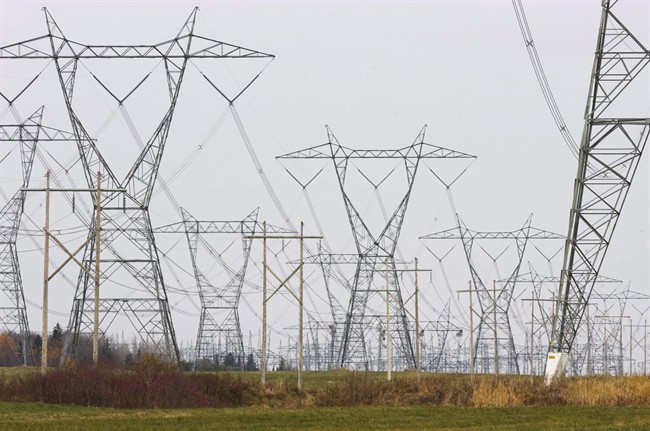Hydro-Québec and Maine’s largest electricity transmission and distribution utility have signed agreements with three power distribution companies south of the border to provide hydroelectricity to Massachusetts.

The Quebec government-owned utility and partner Central Maine Power Company are looking to provide 9.45 terawatt hours of clean electricity annually to Massachusetts for 20 years starting in 2022.
READ MORE: Hydro-Quebec says U.S. export deal will keep local power rates below inflation
The contract has to be approved by the Massachusetts Department of Energy.
The transmission line also needs to receive approvals — including a presidential licence — on both sides of the border.

Get daily National news
The New England Clean Energy Connect project (NECEC) is estimated to cost around US$950 million. The 233-kilometre route in the U.S. would pass through Lewiston, Maine and connect to a regional power grid that will transmit the electricity to the neighbouring state.
READ MORE: Hydro-Quebec names HQ after former Quebec premier Jean Lesage
The cost and route for the Quebec portion of the project haven’t been disclosed.
The project is the back-up option for Massachusetts after its original plan to pass through New Hampshire was blocked by the state.
Construction is expected to begin in 2021.
READ MORE: Michael Penner’s unconventional path to Hydro-Quebec
The supply contract with Massachusetts could add about $10 billion in revenues over two decades for Hydro-Québec, which is aiming to double its annual revenues to about $27 billion by 2030.
The Natural Resources Council of Maine environmental group is opposed to the project it says has not proven to help reduce greenhouse gas emissions.
The organization has collected nearly 2,000 signatures through an online petition that will be sent to elected officials in Maine.
- Michael Kovrig reflects on ‘brutally hard’ Chinese detention: ‘You’re totally alone’
- After controversial directive, Quebec now says anglophones have right to English health services
- Something’s fishy: 1 in 5 seafood products are mislabelled, study finds
- Conservatives set to table non-confidence motion Tuesday. What to expect








Comments